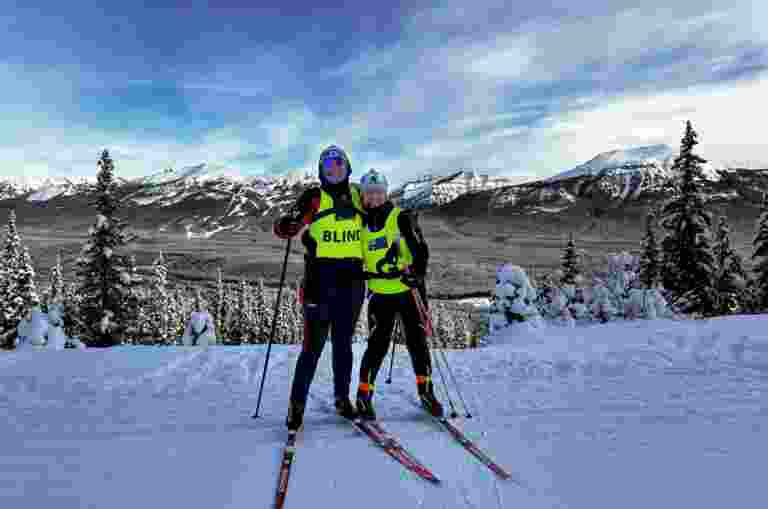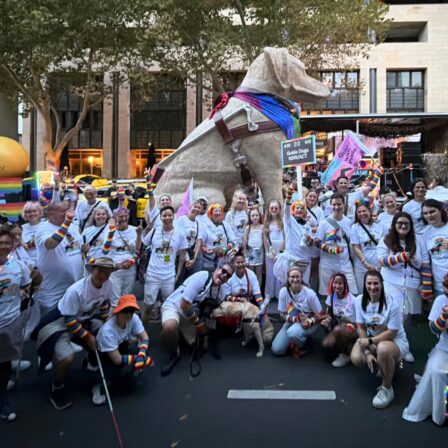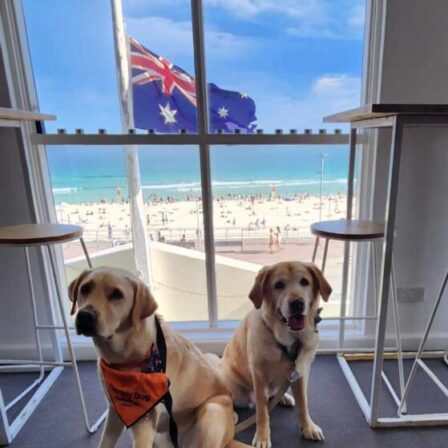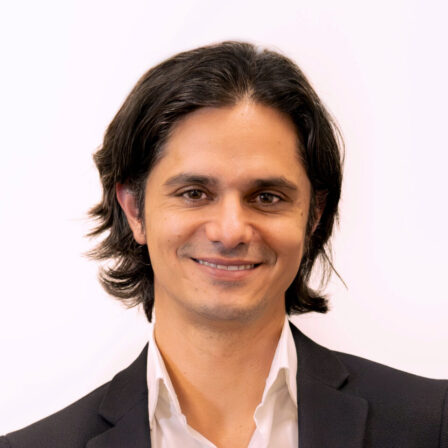News
Blazing a trail toward the Winter Paralympics.

When Taryn began experiencing persistent flashes in her vision at the age of 36, she never imagined it would result in a diagnosis of Cone-Rod Dystrophy— an inherited, progressive retinal condition causing low vision. With no family history and no warning, Taryn suddenly had to reimagine her life. What she found in the process was not just resilience, but a whole new world of opportunity.
Before her vision changed, Taryn had always been active, taking part in road and track cycling, hiking, and just about every sport she could. Coping with her diagnosis wasn’t easy and took time to adjust, but rather than let it sideline her, Taryn embraced new sporting challenges with determination. Discovering Para cross country skiing and Para-biathlon (which combines cross country skiing with target shooting) opened the door to a fresh set of goals—most notably, qualifying for the Winter Paralympics.
When Taryn went looking for a sport to try, she discovered there were no female Paralympic skiers from Australia. So, she gave skiing a go just three years ago. Now, she’s training hard in hopes of reaching the Winter Paralympics in Italy next year. “It’s the hardest, most incredible, fun thing I’ve ever done,” she says.
Para-biathlon involves racing on a cross-country skiing course and alternating between skiing and shooting at targets. Taryn explains that athletes sprint on skis for two and a half kilometres through the snow, then lay down on a mat (with a heart rate of 160 to 170), and try to stay calm while aiming at five tiny, 20-millimetre targets. Missing a target results in either a time penalty or an extra 100-metre lap.
The shooting component uses infrared technology, similar to a car’s reverse camera, with beeps that increase in frequency as Taryn gets closer to the target. She skis with a sighted guide in front of her as a reference point. While finding guides and coaches in Australia has been challenging, she’s grateful to be working with her current guide, Lynn Maree Cullen, a former international biathlete.
Not only are both sports tough, they also require a lot of training and dedication to competing in events in Australia and internationally—from roller skiing in Canberra to training at Perisher and Mount Hotham, plus special training camps in Canada and an upcoming month-long training camp in New Zealand. Balance work and single-leg exercises are also essential for navigating the courses. It’s also expensive. Taryn did community fundraising to buy her specialised rifle and then self-funded a trip to Austria to do a shooting course with the German team.
Taryn is working to meet times within 30 percent of the winners to secure her place on the Australian Paralympic team. She has already competed in a Paralympic test event in Italy and will take part in the national championships this August at Whiskey Flat in Mount Hotham, followed by qualification events in Canada in December.
As the only female competing in her events in Australia, Taryn will race against herself and the clock. But she isn’t fazed. “I have fun and do my best every race. I focus on the things that I can control, which is how I ski in that moment,” she says.
Taryn not only trains hard to compete in her sports; she does it while working a 40-hour week in the military in Canberra. Her sporting success isn’t limited to the snow. In 2023, she competed in the Invictus Games in Düsseldorf as co-captain of the Australian team, representing the country in Para-powerlifting, indoor rowing and cycling. She came home with three gold medals and a bronze. Taryn credits the Australian Defence Force and the Invictus community with helping her rebuild confidence and introducing her to a wide range of sports.
Taryn’s biggest cheerleader is her wife, who supports all her goals. “It wouldn’t be as easy for me to do what I’m doing and achieve what I am without her support.”
When the couple was preparing to marry in a beautiful bushland ceremony in Tasmania, Taryn wanted to walk independently down the aisle. She reached out to Guide Dogs NSW/ACT to enquire about getting a cane and doing cane training. With limited time before the wedding, Guide Dogs connected her with Orientation and Mobility Specialist Andrea Flew, who helped get Taryn confident and ready for her big day. Now, Taryn’s a cane convert—she even runs with a cane!
Taryn would love for more people from the low vision and blind community to get involved in winter sports. Unlike many sporting events that favour younger athletes, Para-sports allow competitors to stay in the game much longer. Taryn has taken her experience with Cone-Rod Dystrophy and turned it into a positive. “Things happen to some people so that they can show other people that it’s going to be okay. I’m just lucky that that was me, and I get this opportunity now to show other people they can do anything too,” she says.
If you’d like to follow Taryn’s Winter Paralympics journey and cheer her on, you can visit Taryn’s website or follow Low Vision Athlete on Instagram.






